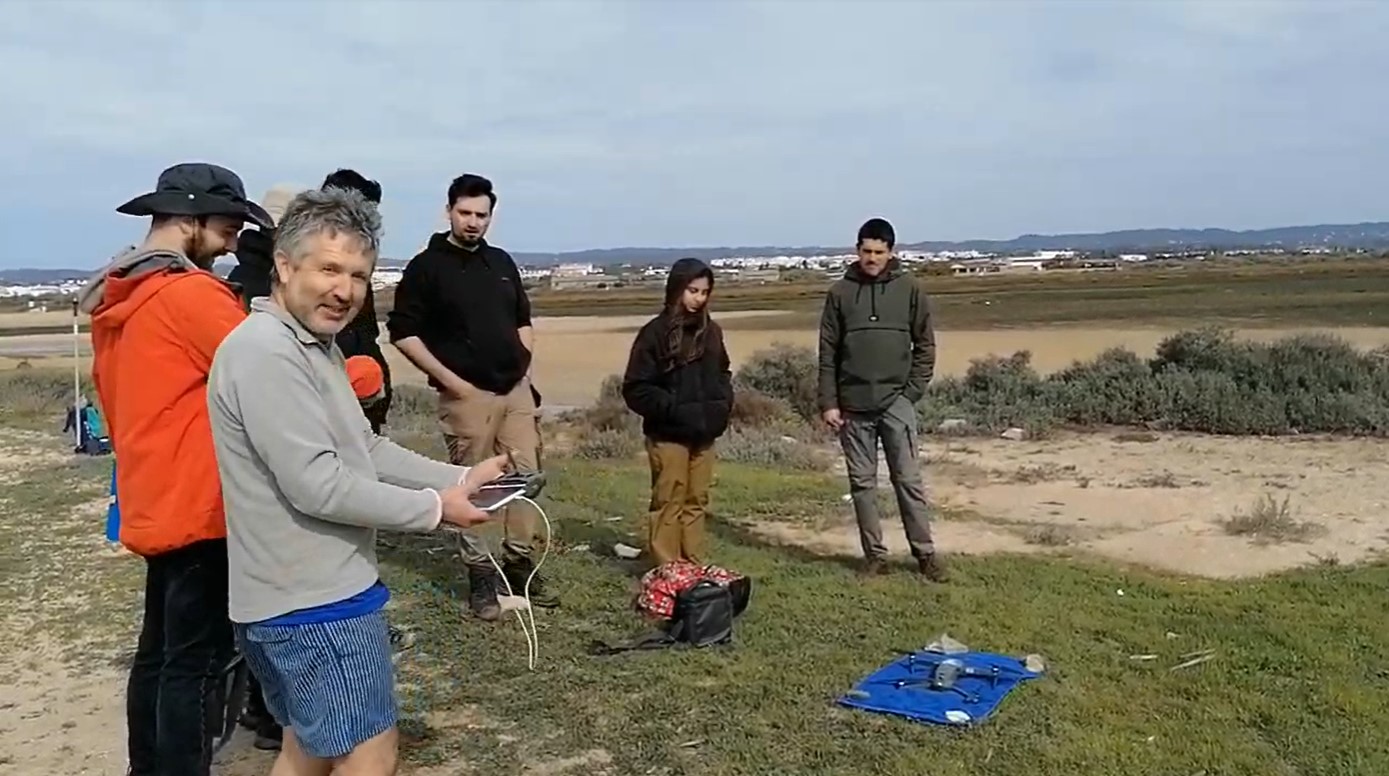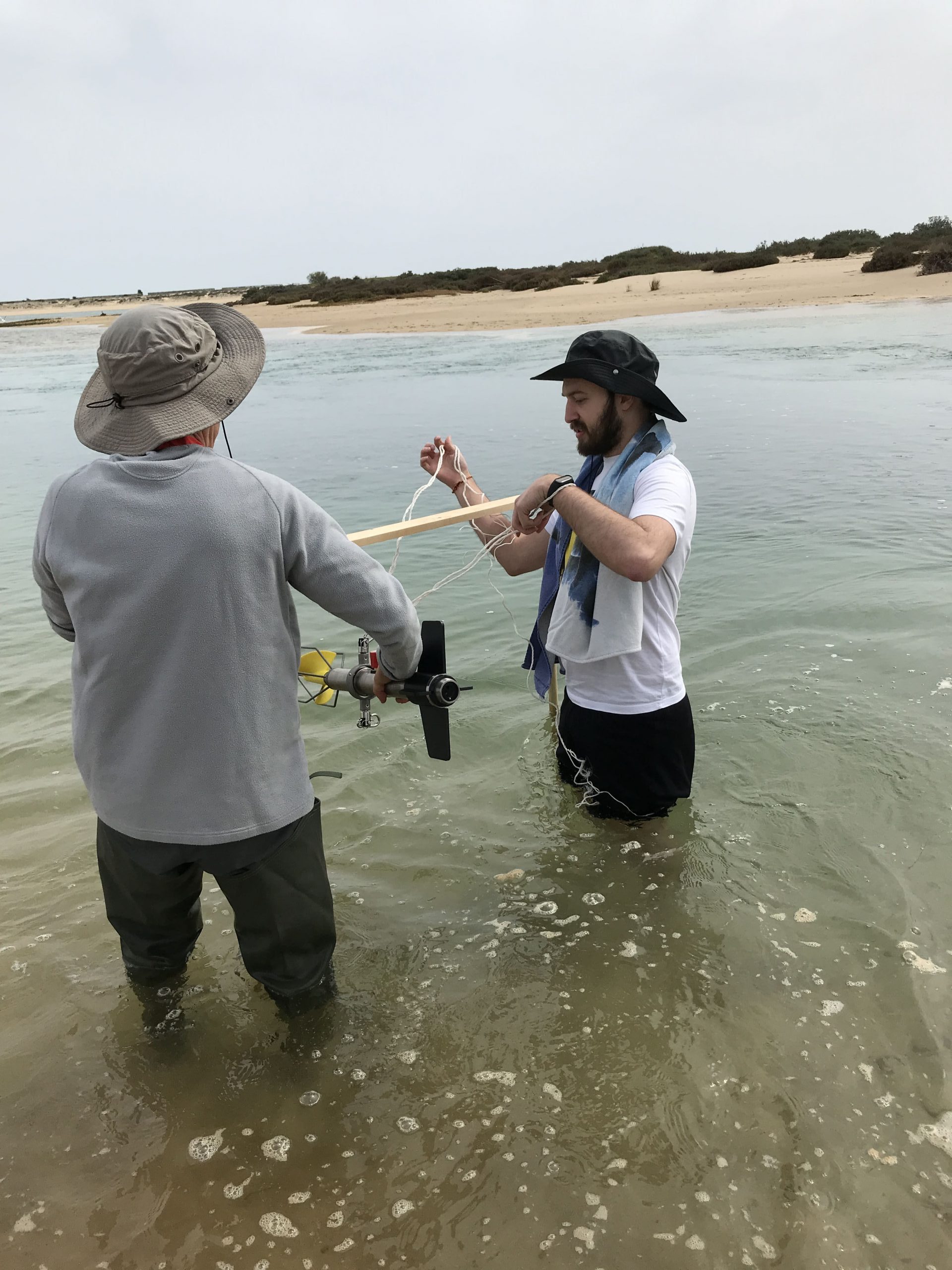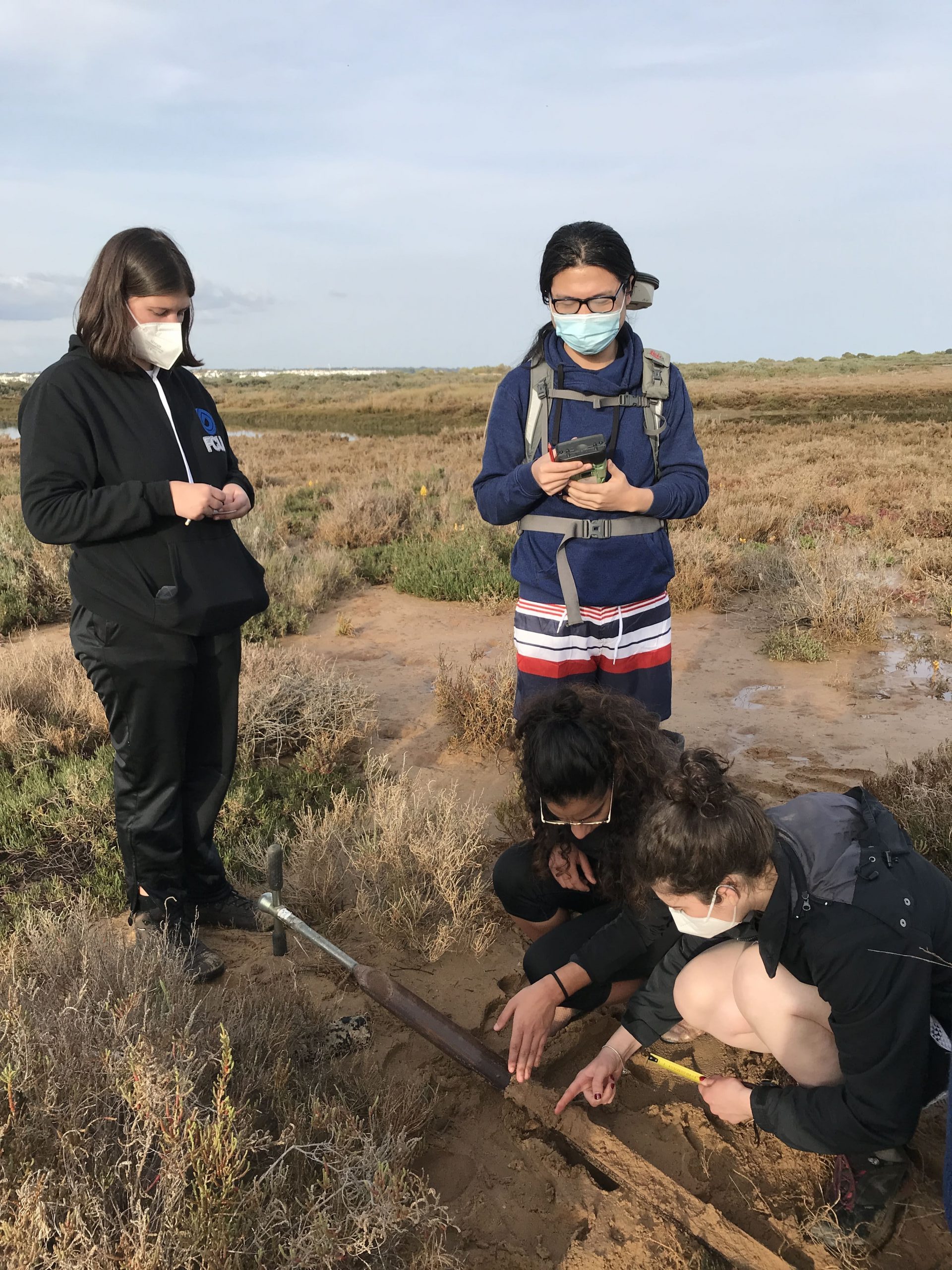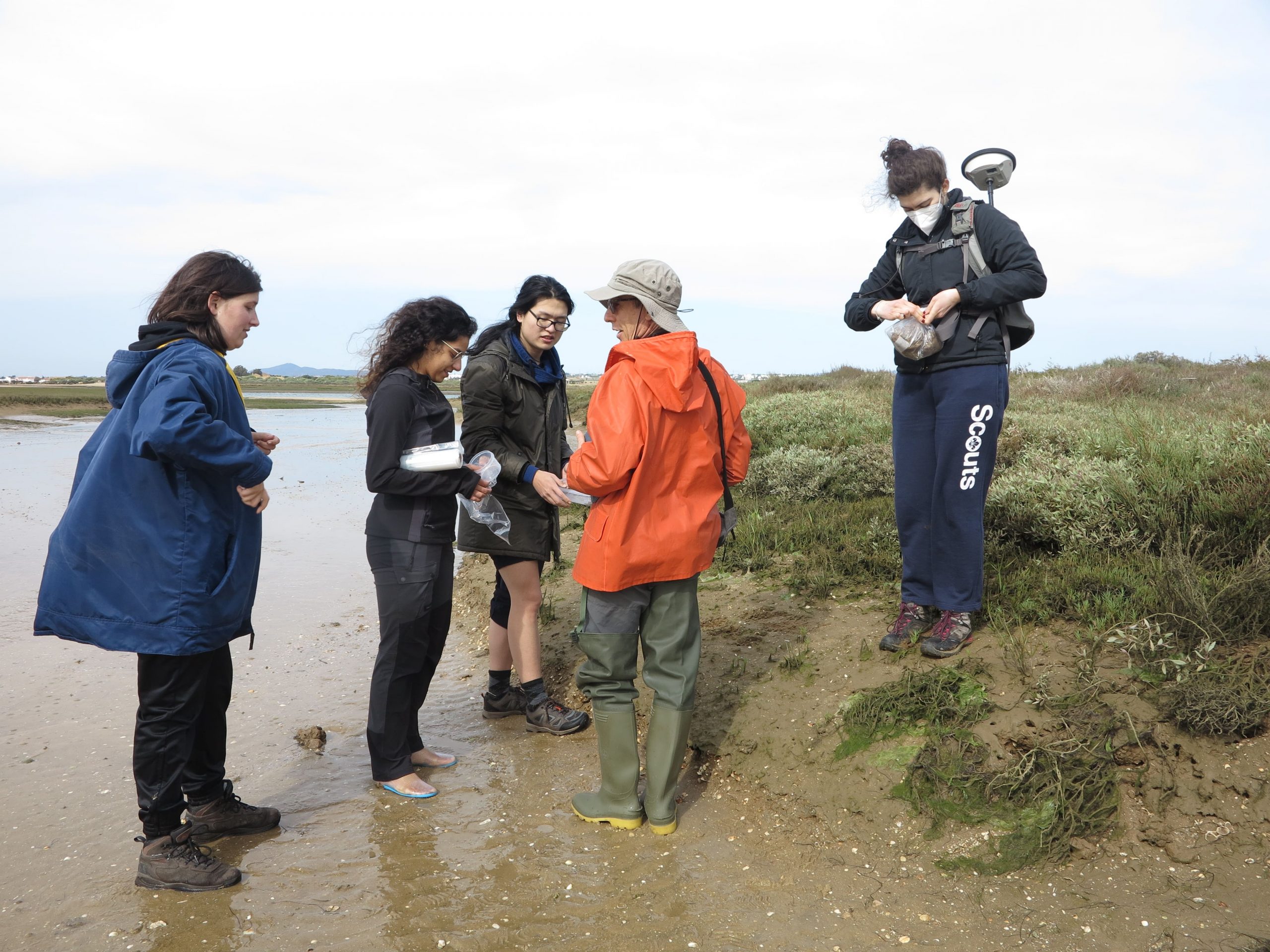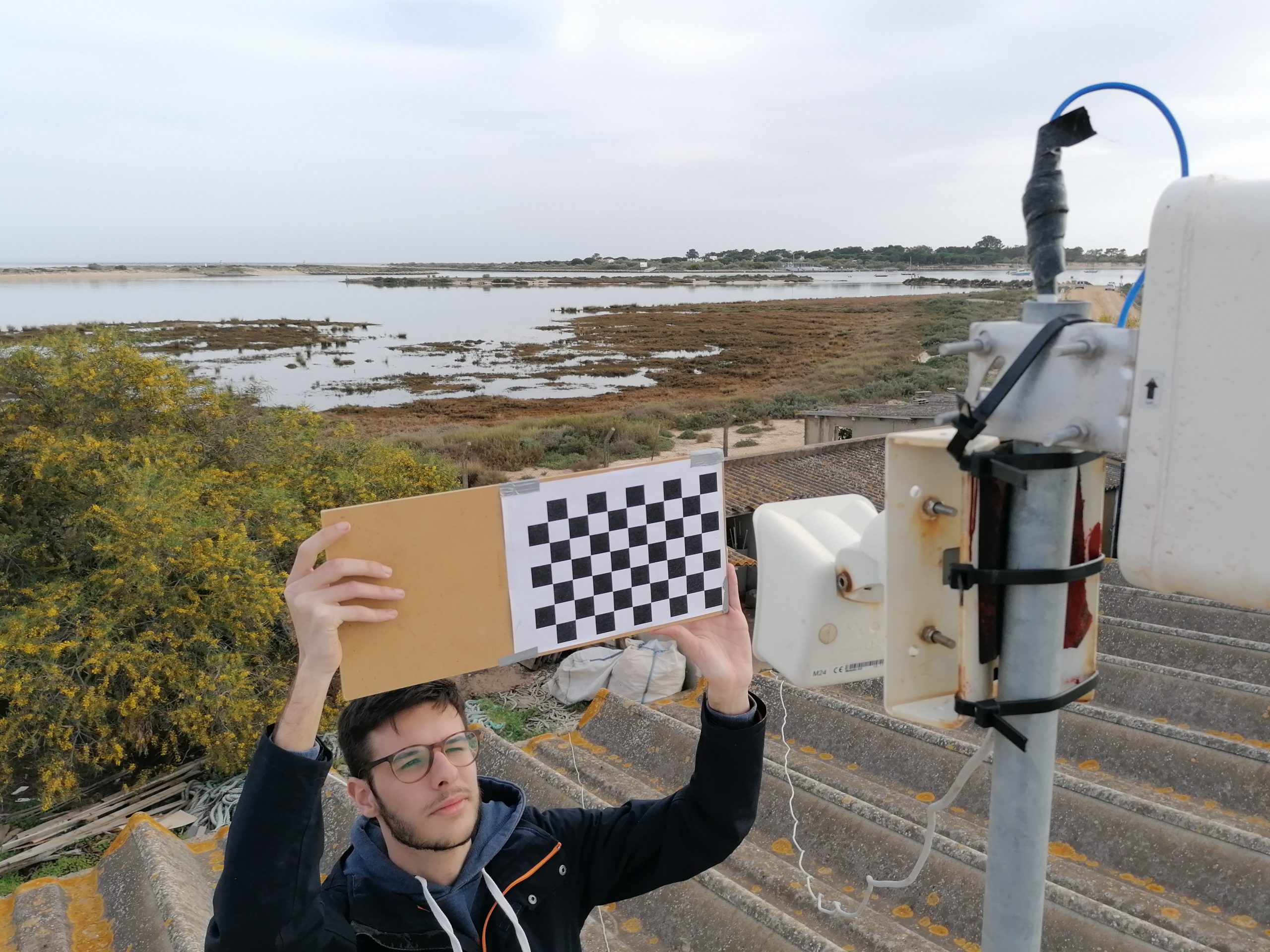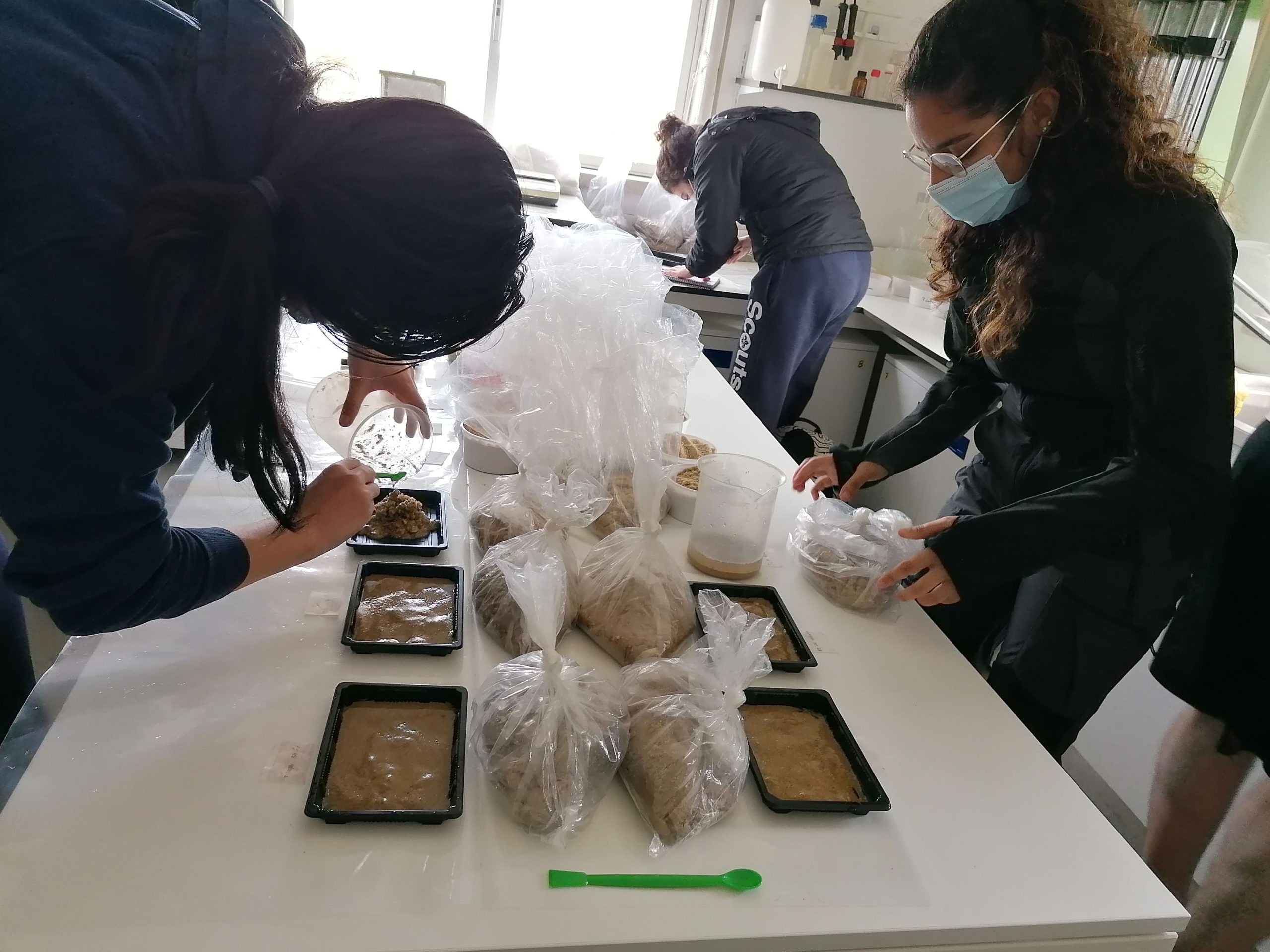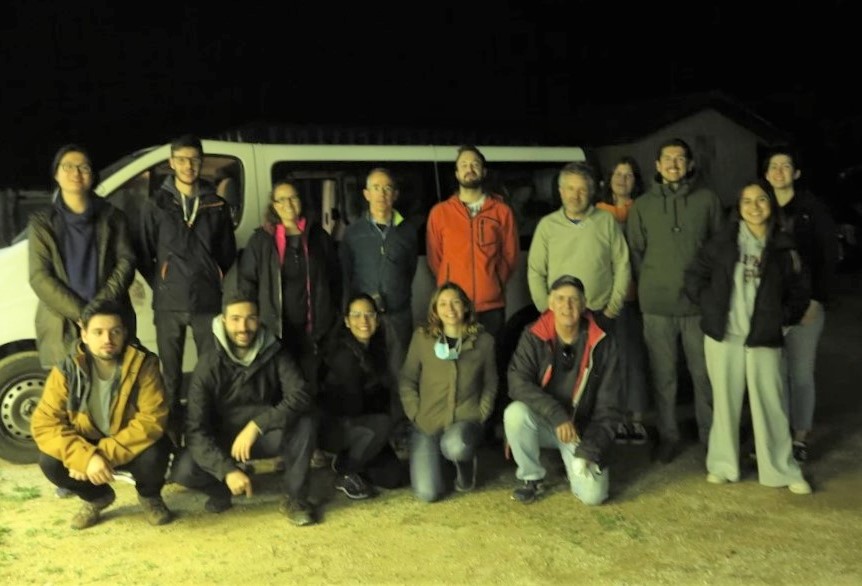Members of the Research Vessels and Ocean Observatories Group participate in the EDUCOAST project – “Nature-Based Education in Coastal GeoSciences – A field station in southern Portugal”, which takes place in the facilities of IPMA’s Tavira Station (EEMT) and relies on the research vessel Diplodus for training in marine and coastal geology.
On March 18, 2022, 9 students from the Project Curricular Discipline of the Geology degree course and 1 student from the Master’s degree course in Environmental Geology, Geological Hazards and Spatial Planning, accompanied by Professors from the Faculty of Sciences of the University of Lisbon (FCUL), a partner in the project, carried out fieldwork to characterize the morphological and sedimentary environments of the saltmarsh/barrier island system along the coastal area adjacent to the EEMT, located in Ria Formosa.
The activities included the sampling of sediments along the several environments (saltmarsh, channel and barrier island) at surface and at depth (soundings), topographic surveys using the Global Navigation Satellite System (GNSS), assembling a video camera and performing a drone flight with image capture, as well as assembling a pressure transducer and a tide gauge to measure the tide level and currents. A preliminary analysis of sediment samples was also carried out in the marine and coastal geology laboratory of EEMT.
The campaign lasted 12 hours, from 7:30 am to 7:30 pm, covering a full tidal cycle, and promoting experimental learning in the field, offering a variety of experiences that cannot be acquired in the typical classroom environment, especially in the area of natural sciences.
In addition to IPMA and FCUL, the Portuguese Environment Agency, I.P. and the Tavira Ciência Viva Centre are also participating in this project. The EDUCOAST project is funded by the EEA Grants Blue Growth Programme and covers the expenses related to the trainees’ attendance.
